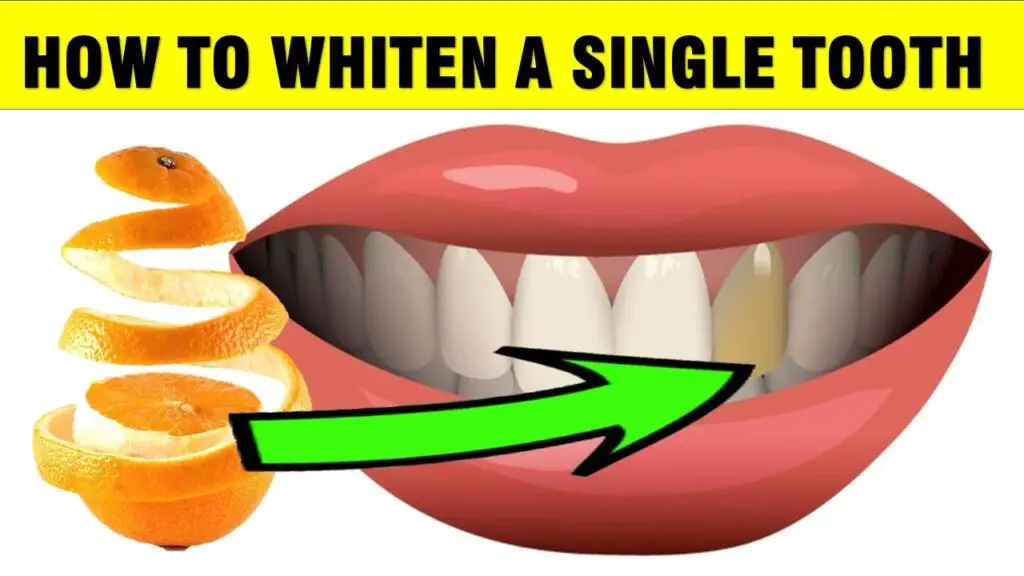Tooth discoloration is an easily solvable problem that plagues many people. If your teeth are discolored, you might feel self-conscious about them - but luckily, there's plenty you can do to whiten your discolored teeth.
Discoloration has many causes, ranging from your daily cup of coffee to poor dental hygiene. Whitening strips and professional treatments are expensive and can leave the teeth feeling sensitive to hot and cold foods and drinks. This means they're not, as they're advertised to be, usually the best solutions.
Using natural remedies can help with yellow teeth and dental health. Read on to learn some of the causes of tooth discoloration, and the best home remedies that can be used to avoid costly professional teeth whitening.
Types of Tooth Discoloration
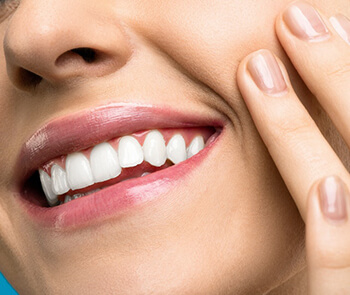
To determine the best treatment for discolored teeth, it's important to figure out the type of discoloration. There are three types: extrinsic, intrinsic, and age related staining.
Extrinsic Staining
Extrinsic staining is the most common form of staining. It occurs when the enamel of the tooth is stained, leaving a surface stain that can be easily treated.
This kind of draining is typically due to lifestyle habits, such as drinking dark coffee, drinking red wine, smoking, and drinking dark-colored cola. Extrinsic staining is typically yellow, and can be easily treated.
Intrinsic Staining
Intrinsic staining occurs on the inside of the tooth and is harder to treat. This discoloration is usually caused by trauma or injury to the tooth. It can also occur as a result of too much fluoride use.
Age Related Staining
Age related staining is a combination of both extrinsic and intrinsic staining. Dentin, which is under the enamel, can naturally yellow over time, while food and drinks turn the enamel yellow, too. Because the enamel thins with age, the dentin underneath can show its color.
Causes of Tooth Discoloration
There are many causes of tooth discoloration. Early childhood injuries, continued use of tobacco, sugary snacks and beverages, and wine are all factors that can cause teeth to become discolored.
'Problem" foods and drinks in moderation shouldn't cause staining, as long as you follow up with proper hygiene. However, over time, your teeth may permanently stain. Home remedies can whiten your teeth and remove some of the surface stains caused by the things listed below.
Food and Drink

Different types of food and beverages can stain teeth. Tannins found in tea, coffee, and red wine can cause staining on the tooth enamel.
Certain acids can cause staining, too. These acids are found in colas and dark-colored fruit juices such as cranberry and blueberry juice. Tomato-based sauces and drinks can cause staining as well.
The pigmentation of our food can also determine whether or not it will stain our teeth. Curries, soy sauce, balsamic vinegar, and beetroot are all heavily pigmented foods that can stain the teeth.
Injury and Medication
Injury to the tooth and some medications can also cause teeth staining.
Chemotherapy and radiation affect the color of the teeth and can cause them to stain yellow. Certain antibiotics can cause tooth discoloration, as they have an effect on the enamel. This also applies to antihistamines, like Benadryl.
Injuries to the teeth that cause chipping or trauma may lead to nerve death, and this can also cause tooth discoloration.
Children are especially susceptible to staining after injuries to their teeth, because their enamel is more easily disturbed. Sports injuries can cause disruption in the root of the tooth, stunting the blood flow and causing the tooth to turn to a grey color.
Lifestyle Choices
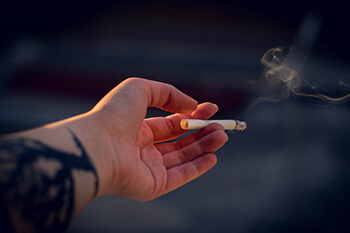
Certain lifestyle choices can cause tooth discoloration. Smoking or chewing tobacco products is, unsurprising, the biggest cause of yellowing of the teeth. Poor oral hygiene can also cause yellowing and damage to tooth enamel. Plaque and food stains can build up if oral hygiene isn't maintained.
Home Remedies for Discolored Teeth
Home remedies are cheaper than pricy whitening treatments that can leave your teeth feeling sensitive.
When using home remedies, make sure you maintain good hygiene practices. Use the home remedies once or twice a day, and if your teeth become sensitive, stop and seek advice from a dentist.
Apple Cider Vinegar
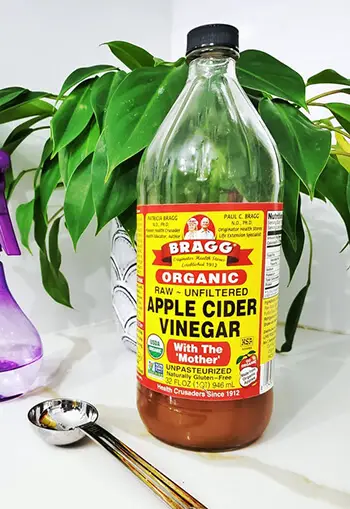
Apple cider vinegar has more uses than as a culinary condiment. You can also use the vinegar to remove staining and plaque from your teeth.
The acids found in apple cider vinegar can break down the plaque on your teeth, naturally giving them a healthier and shinier appearance. Apple cider vinegar can also help kill bacteria in the mouth that causes bad breath, so it has double the oral hygiene benefits.
Baking Soda
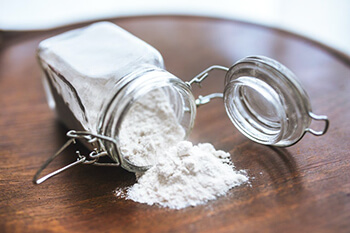
You probably already have baking soda in your kitchen cupboard. This affordable baking essential can also be used as an at-home whitening treatment.
Baking soda is a mild abrasive that can help remove extrinsic stains from your teeth and reduce teeth discoloration. It's safe for use on the enamel and dentin.
To use baking soda as a DIY whitening treatment, mix a tablespoon of baking soda with a tablespoon of water. Apply this to your teeth and brush your teeth gently. Repeat twice a day.
Hydrogen Peroxide
Hydrogen peroxide is a common ingredient in many professional whitening treatments - and the good news is, it's easy and affordable to get your hands on it yourself.
Hydrogen peroxide can penetrate the layers of the teeth, removing the compounds that give teeth a yellow color. It's important to be aware that hydrogen peroxide should only be used for short periods of time, so you don't end up damaging your tooth enamel.
It's easiest to use a hydrogen peroxide solution as a mouth wash. Simply dilute two ounces of hydrogen peroxide with two ounces of water. Swish the solution in your mouth for two to four minutes, then spit it out as you would with a typical mouth rinse.
Another way to use hydrogen peroxide as a tooth whitening treatment is to mix a teaspoon of hydrogen peroxide with a teaspoon of baking soda. Apply the paste to your teeth and leave it for five minutes before rinsing off with water. Be careful not to scrub this paste into your teeth, as baking soda can be quite abrasive.
Orange Peel
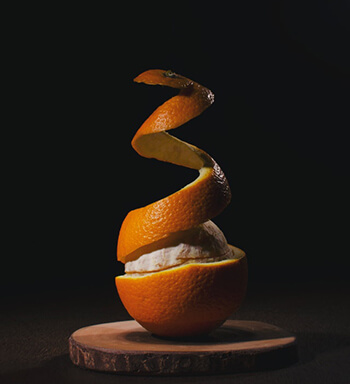
Orange peel is another unexpected natural treatment for discolored teeth. Orange peel contains limonene, vitamin C, and gluconate, which act as natural teeth whitening agents.
Some research has shown that the limonene in citrus peels can help reduce the appearance of yellow or stained teeth.
To use orange peel as a natural teeth whitening treatment, rub the white part of the peel against your teeth for around two minutes. Be careful when using orange peel as a whitening treatment, as the acid can cause damage to your tooth enamel.
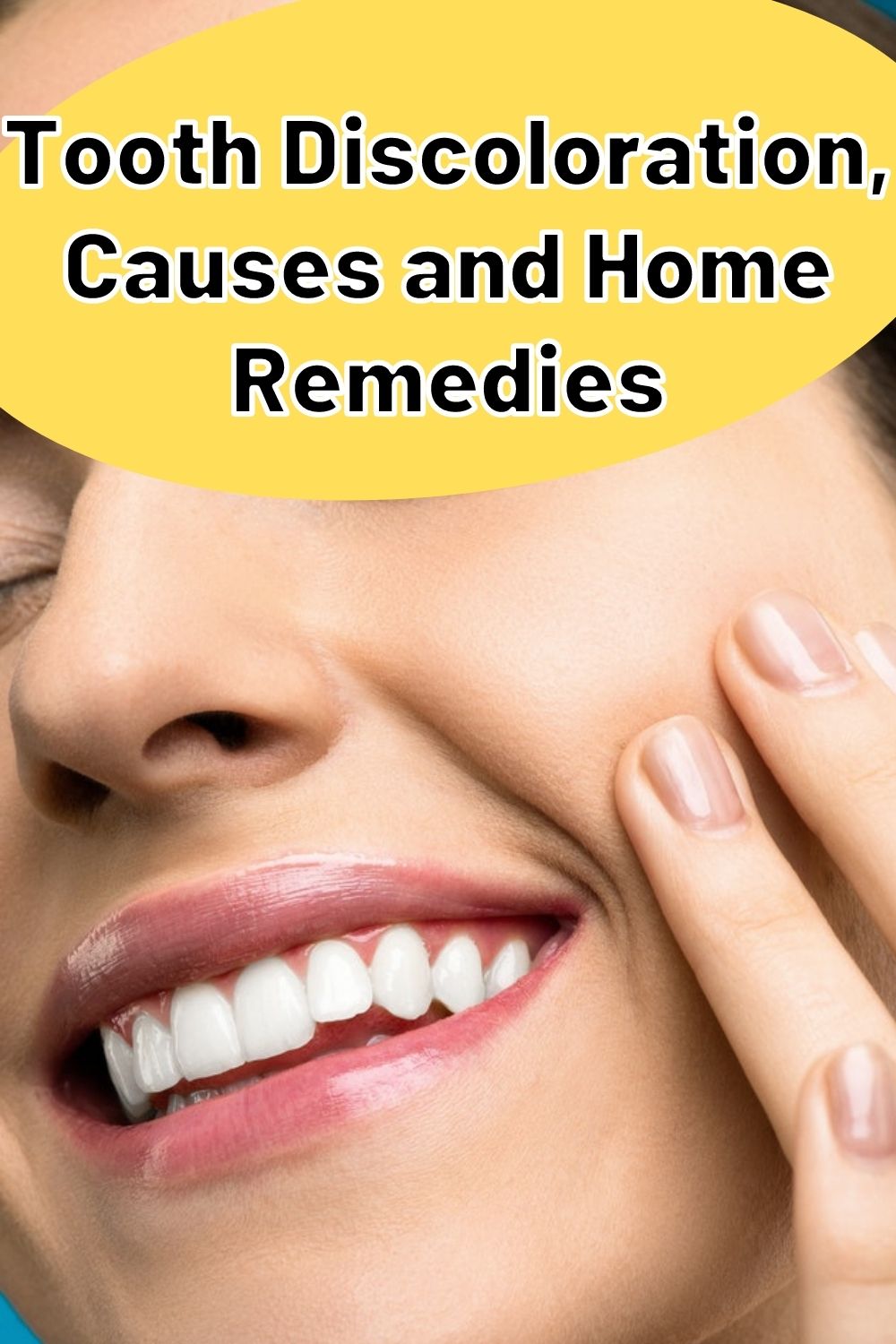
Coconut Oil
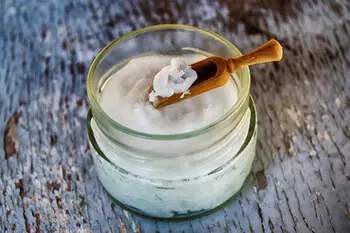
Coconut oil is a firm favorite of health enthusiasts around the world, thanks to its versatility as a common natural remedy.
Research shows that coconut oil may help with plaque buildup and reduce inflammation in the gums. Coconut oil contains different antimicrobial and anti-fungal agents that can help reduce the bacteria that causes bad breath and decrease the plaque that can cause teeth stains and tooth decay. The lauric acid in coconut oil can help remove surface stains from teeth, helping to whiten them naturally.
Activated Charcoal
Like coconut oil, activated charcoal has become increasingly trendy over the years. It can remove surface stains from the teeth and act as a DIY whitening treatment for people with stains on the outer layer of their teeth.
Charcoal can make teeth whiter, and helps with smoking stains, as it binds to toxins and acts as an abrasive. However, charcoal can be incredibly harsh on your teeth, so it's important to only use it occasionally, and to speak with a dental professional if you plan on using it consistently.
To use charcoal to treat stained teeth, mix the powder with water to create a paste. Use your finger to rub the paste into your teeth and leave it for two minutes. Follow up by rinsing with water. Don't brush your teeth with activated charcoal, as it may damage your teeth.
Good Hygiene Practices
Practicing good dental hygiene can help with teeth discoloration and whiten your teeth.
Brushing your teeth and flossing regularly can help prevent tooth decay from acidic foods. Gently brush your teeth to prevent your gums from bleeding, and use a whitening toothpaste alongside natural remedies to whiten yellow teeth.
An antibacterial mouthwash can help with bad breath and prevent the formation of plaque and tartar. Make sure to visit your dentist's office for regular checkups and dental cleaning. Your dentist can recommend professional whitening treatments, and offer tips for good oral hygiene and enamel development.
Strawberries
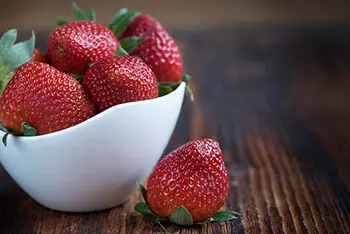
Strawberries might be an unusual item on this list, but according to early research, they can be used effectively to whiten yellow teeth. It's thought that the vitamin C in strawberries can help remove yellow staining.
Conclusion
Good dental hygiene can prevent staining, and even go as far as to prevent some periodontal diseases. However, even with good oral health, certain types of food and wine can stain teeth.
Home remedies are great for people on a budget who want whiter teeth. Most home remedies can treat extrinsic stains, but for intrinsic stains, you should seek advice from a dental professional, as these can be more difficult to treat.
Coconut oil is a safe teeth whitening treatment that can help you achieve whiter teeth without damaging the tooth enamel. Baking soda and other abrasives may achieve faster results, but should be used sparingly as they may hurt healthy teeth.
If you don't already, buy some fluoride toothpaste and use it to help protect your teeth. An antibacterial mouthwash can also help to prevent the growth of plaque in the mouth that can stain teeth.
If you're worried or have a question that can't be answered from a Google search, visit your dentist. A dentist can provide medical advice and treatments to help with hygiene and teeth whitening solutions. It's good to see your dental hygienist twice a year to help keep your teeth clean and prevent gum disease.

